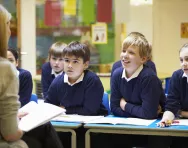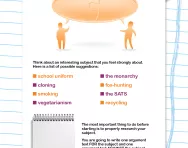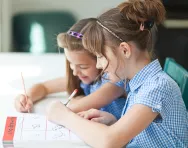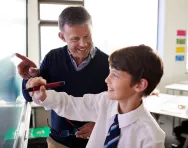Important update from TheSchoolRun
For the past 13 years, TheSchoolRun has been run by a small team of mums working from home, dedicated to providing quality educational resources to primary school parents. Unfortunately, rising supplier costs and falling revenue have made it impossible for us to continue operating, and we’ve had to make the difficult decision to close. The good news: We’ve arranged for another educational provider to take over many of our resources. These will be hosted on a new portal, where the content will be updated and expanded to support your child’s learning.
What this means for subscribers:
- Your subscription is still active, and for now, you can keep using the website as normal — just log in with your usual details to access all our articles and resources*.
- In a few months, all resources will move to the new portal. You’ll continue to have access there until your subscription ends. We’ll send you full details nearer the time.
- As a thank you for your support, we’ll also be sending you 16 primary school eBooks (worth £108.84) to download and keep.
A few changes to be aware of:
- The Learning Journey weekly email has ended, but your child’s plan will still be updated on your dashboard each Monday. Just log in to see the recommended worksheets.
- The 11+ weekly emails have now ended. We sent you all the remaining emails in the series at the end of March — please check your inbox (and spam folder) if you haven’t seen them. You can also follow the full programme here: 11+ Learning Journey.
If you have any questions, please contact us at [email protected]. Thank you for being part of our journey it’s been a privilege to support your family’s learning.
*If you need to reset your password, it will still work as usual. Please check your spam folder if the reset email doesn’t appear in your inbox.
Philosophy in primary school: how thinking skills will benefit your child

Why teach philosophy in primary schools?
If you’ve endured the ‘why?’ phase, you’re probably well aware of how children love to question, and philosophy is a natural extension of this.
‘Children really enjoy talking about what is important and meaningful to them,’ explains Lizzy Lewis, development manager of SAPERE, the project that promotes philosophy in schools, colleges and the community. ‘Philosophy is a rare opportunity for them to talk freely, without being directed by the teacher or the curriculum.’

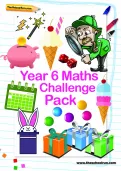
Is your child ready to be stretched?
- Download Challenge Packs for your child
- Maths & English packs for each school year
- Encourage your child to work at a greater depth
Philosophy has many benefits for children. ‘It encourages reasoning and deep thinking, where children have to make their own judgements,’ says Peter Worley, co-founder of The Philosophy Foundation, a charity that trains philosophy graduates to teach philosophy in schools. ‘It helps spiritual and moral development, and speaking and listening skills.’
Philosophy also helps children’s relationships. ‘It can have a positive effect on behaviour, because children learn that you can still like someone even if you have different opinions,’ Lizzy says. ‘Philosophy helps them get to know each other in a different way, and often, the conversations carry on in the playground afterwards.’
A new study shows that teaching philosophy in Years 4 and 5 also leads to higher academic achievement in terms of maths, reading, and writing, with pupils in the study making approximately two additional months’ progress in reading and maths. The Philosophy for Children teaching approach also had a positive influence on pupils’ confidence to speak, listening skills and self-esteem.
So what does a philosophy lesson look like?
A typical philosophy lesson starts with the children being given a stimulus, such as a picture book, a video or a piece of music or art. They then come up with a list of philosophical questions inspired by the stimulus – anything from, ‘Are friends more important than family?’ to, ‘Is it ever okay to steal?’ – and vote on which one to talk about. The class then has an ‘enquiry’ – an open dialogue – around that question.
An alternative model involves the facilitator setting up an imaginary scenario, for example, getting children to imagine that they’re sitting in an Incredible Shrinking Machine. ‘We then imagine that the machine has gone wrong, and the children don’t stop shrinking,’ says Peter. ‘This triggers deep metaphysical questions, for example, “Would you shrink until you disappeared?” and, “Would you actually disappear, or just become so small that no one could see you?”
Although the teacher models philosophical language and reasoning skills, the children direct the course of the discussion. ‘They’re encouraged to develop a variety of questioning strategies to help them think philosophically, for example, thinking about what an “imaginary disagreer” might say, which helps them see alternative viewpoints,’ says Peter.
How much philosophy is taught in primary schools varies hugely. ‘The ideal is for it to be taught from Nursery through to Year 6, on a weekly basis,’ Lizzy says. Some schools also run extra-curricular philosophy clubs, while a Philosophy Foundation pilot scheme is training Year 7 students to go into primary schools and lead philosophy lessons.
What sort of issues might your child be thinking about?
Because philosophy sessions are child-led, there’s no limit to what they might choose to discuss. ‘Often, though, they gravitate towards moral questions about behaviour, right and wrong, and good and bad,’ Lizzy says. Good topics to discuss with your child might include:
- Is it ever all right to lie?
- If you had a different name, would you be a different person?
- What would you do if you had a ring of invisibility?
- Is it possible to think of nothing?
- Can computers think?
- Is there anything we cannot know?
- Would you eat a pig if it could talk?
Exploring philosophy with your child
If you want to encourage your child to think philosophically, be prepared to take a step back. ‘It’s essential to give your child space to think, and not answer the question for him,’ says Peter. ‘Ideally, it’s best to have philosophical discussions with more than one child, as they naturally start to challenge each other.’
Here are some good resources to kick-start philosophical conversations with your child.
- The Philosophy Foundation has a list of recommended books, online resources, poems and films. The Philosophy Shop by Peter Worley (£14.99) is a book of puzzles, ideas and exercises to get children (and adults) thinking philosophically.
- Picture books: ‘Well-known books like Not Now, Bernard by David McKee, Where the Wild Things Are by Maurice Sendak and Would you Rather? by John Burningham are great starting points for philosophical discussions,’ says Lizzy.
- Teaching Thinking, the website of children’s philosophy expert Robert Fisher, includes a range of resources, including discussion plans and stories to talk about.
- SAPERE's website has a comprehensive list of recommended books for children and adults.
- What’s the Big Idea? is a CBeebies series introducing critical thinking to young children. You’ll find episodes and activities on their website.
- Delphi Philosophy uses stories to engage children with the world of philosophy, help them to ask big questions, and show how we can respond. By interacting with the story, children learn how to listen, question, reason, articulate their thoughts and become philosophers themselves.
- The Center for Philosophy for Children offers lots of lesson plans for facilitating philosophy discussions with children and young people.
- The world around you! Opportunities to think philosophically are everywhere. ‘Even watching Newsround can prompt good discussions,’ says Lizzy. ‘What’s important is that they’re directed by your child: he’ll genuinely enjoy the challenge of thinking for himself.’









